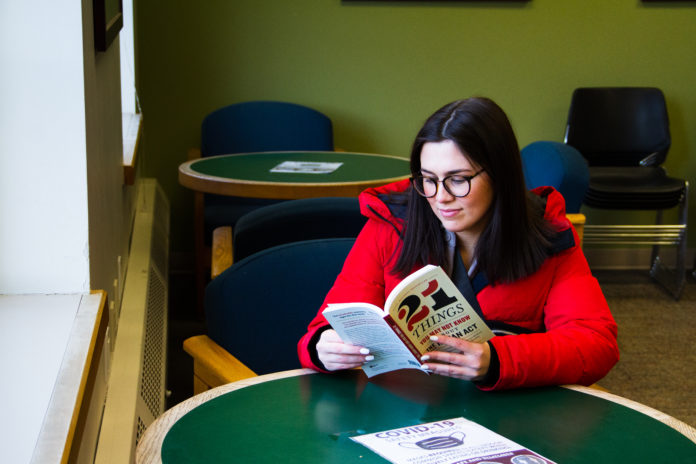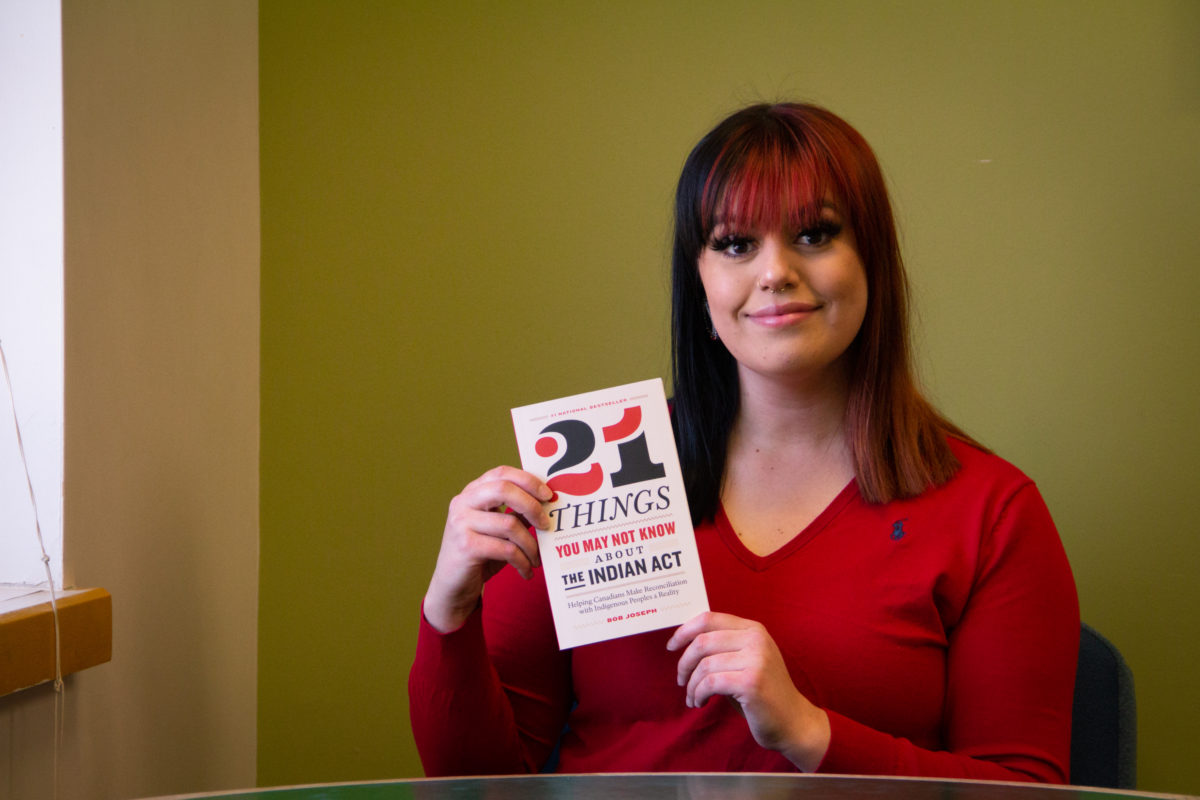
Some students are finding the time to read more than textbooks this semester. The St. Thomas Student Reconciliation Committee created a book club to engage with the STU community.
Stevie DeMerchant, chair of the committee, took on the initiative alongside Jacob Moore, a member of the committee.
“The goal of this project is to give students the opportunity to gain knowledge on the history, but more specifically on the Indian Act, since the Indian Act is something that affects Indigenous people to this day,” said DeMerchant.
The book club started on Friday with 21 Things You May Not Know About the Indian Act, written by Bob Joseph.
“This committee came intact to decolonize St. Thomas on a student body level,” said DeMerchant. “We do this by creating a safe space for all students and all faculty to be able to gain knowledge on the history, culture and societal issues that Indigenous people face.”
Funding for the book club came from the Senate Committee on Reconciliation and the STU Students’ Union, which was used towards buying the books. The funding allowed the members of the book club to own a copy of the book without paying a fee.

DeMerchant said the main priority of the book club is for it to be low commitment. There will be a meeting held bi-weekly until the book is finished.
There are nine people in the book club. Julia Evans, third-year STU student, is one of the participants.
Evans first heard about the book club through a STUSU meeting where DeMerchant talked about the book club and encouraged STUSU members to get involved.
Since Evans is STUSU’s at-large representative, she represents all of STU. She said joining the book club would help her to learn more about Indigenous topics so she could truly represent all STU populations.
“I think a crucial part of that is understanding … the very prominent issues that everyone suffers on campus… I think a really crucial part of representation is educating yourself,” she said.
Her other reason for wanting to join the book club is to become educated on the issues of reconciliation as a non-Indigenous woman in Canada. She said the best way to learn is through doing this book club.
“I think it can be intimidating when you feel like there’s so much to learn. An informal, safe, inclusive environment with Indigenous and non-Indigenous people to have these discussions, … it’s the ideal atmosphere,” she said.
Evans said looking from a historical perspective and studying the Indian Act is a good starting point to reconciliation. She said while she’s learned about some of these issues in her political science and human rights classes, she wants to learn more about Indigenous experiences.
“I understand how the Indian Act has been an instrument of oppression … I think having these conversations, I want to learn more about not just what the Indian Act said, but how the repercussions of imposing these European systems [have] impacted generations,” she said.
Another participant of the book club, Danielle Scott-Stafford, is in her fourth year at STU and heard of the book club through being a member of the reconciliation committee and seeing flyers promoting it around campus.
“I’m doing a minor in native studies, so I thought that it would be really, really good to have that on there as well and to talk to students,” she said.
Scott-Stafford joined the book club because she liked the idea of having a connection with other students.
“Being in an environment where I can actually talk to like-minded people about stuff that’s really important was one of the reasons [I joined].”
